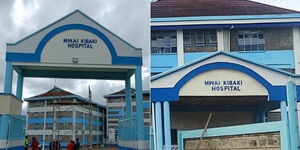President William Ruto, on Thursday, August 3, announced that he had secured Ksh100 billion to commence the construction of Phase Two of the Konza Technopolis.
Responding to questions from journalists regarding his recent international travels, the Head of State clarified that his visits to different countries were primarily aimed at securing the necessary funding for the project.
President Ruto further emphasized his strong preference for the facility to move into Phase Two promptly, to enable construction to begin immediately.
"Some people have been asking what have I been doing when I go to these countries. The other day I saw the media say this man has traveled here and there. Among the things I have achieved, I traveled to Korea, Germany, and other three countries on this same project," Ruto added.
The president spoke in Machakos County while awarding a charter to the Open University of Kenya(OUK).
Ruto assured that construction would commence immediately, and the government would ensure its timely completion.
At the same event, the President unveiled ambitious plans for the Kamba community's water supply and announced the expansion of the road from the Machakos turnoff to Emali.
The President made a firm commitment to resolve the long-standing disputes between Kajiado and Makueni by developing pipelines.
In addition, he emphasized that the new project aligns with Kenya's digital aspirations, aiming to transform the nation into a "silicon savannah."
The Konza Technopolis project was initiated in 2012, following its commissioning in 2009 as a crucial component of Vision 2030 during the late President Mwai Kibaki's administration.
In 2008, the government granted approval for the city's construction, and the Master plan for Phase One was developed in 2012. Subsequently, significant milestones were achieved, such as the completion of the KETRACO substation and ICTA fiber line in 2016, along with the construction of the First Konza Technopolis building in 2019.
The smart city situated in Machakos was envisioned to include hotels, residential areas, schools, and hospitals, with the potential to generate thousands of job opportunities for the youth.
However, nearly a decade later, the city remains unfinished, despite an expenditure of over Ksh500 billion.












